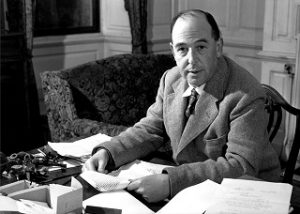This is mark Joseph “young” blog entry #380, on the subject of Authorial Influences.
About half a decade ago I wrote web log post #75: Musical Influences, attempting to identify those who impacted my musical composing style. Then the other day I heard an ad for a documentary which included the comment that the speaker could not imagine any author not having been influenced by Ernest Hemmingway.
I cannot imagine that I have been influenced at all by “Papa” Hemmingway, at least, not directly. I cannot recall having read anything he wrote, although I must have done probably in high school or possibly in college, and simply don’t remember it. I can’t say he has had no influence–as with music, so many are influenced by others influenced by others that there must be some trickle. I’ll just say that I don’t think Hemmingway has influenced me more than Hawthorne, or Melville, or London, or Fitzgerald (each of whom I can remember having read at least one work and recall something about it). At least with Fitzgerald I can name one detail I learned, albeit from a teacher commenting on the book. Same with Poe, that I can name lessons I learned from him, but wouldn’t say that he had significant influence on my writing. That, though, got me wondering who has.

I must mention the Gordon College professor who taught Creative Writing: Fiction. Embarrassingly, I cannot remember her name, despite the many things I remember about her. I learned much in that class, and benefited greatly from it in preparation for the career I did not then imagine having. Yet she is not an author, or if she is I was not aware of anything she wrote apart from the course syllabus.
The obvious person to mention is C. S. Lewis. He is both the author I have most read and re-read, and the one who has most impacted my own writing, in both style and substance. I expect that’s obvious. Like Lewis, I do write Christian books, but I also write what he called “books by Christians”, books that are not specifically Christian but having been written by a Christian author in some ways reflect Christian thought.
Although I could wish I wrote epic adventures like J. R. R. Tolkien or modern supernatural novels like Charles Williams, I’m afraid all I can say of them is that I’ve read several books from each and enjoyed them thoroughly. I did learn from Tolkien the value of multiple staging, which I also saw in the work of Frank Herbert. (Multiple staging is the technique of having several main characters in different places and moving from one to another so that the reader always wants to know what happened to the other characters even while learning what happened to one.) Herbert also taught me the importance of maintaining perspective, but only because he rather jarringly did not do so in one place in his narrative.
The author who has probably placed second in sheer volume of material I’ve read is my wife’s favorite fiction author, Agatha Christie, but although I learned quite a bit thinking about how her mysteries were constructed (and seen the lessons in the work of others, such as J. K. Rowling), my mysteries are not on nearly the same level as hers.
It occurs to me that I have also read many books by Theodor “Dr. Seuss” Geisel, both when I and when my sons were young, but somehow no matter how many of his books you’ve read it never seems to be a lot. On the other hand, the poetic structure tends to get into your speech patterns. I once heard some comedian say that Dr. Seuss was the original and best rapper, and he performed a bit of Green Eggs and Ham to prove it.
On the subject of poets, Ogden Nash is probably my favorite. I’ve read two of his anthologies and memorized many of his shorts. I don’t know how much impact that has had on my writing style, though. I’ve also memorized several Robert Frost poems and a wealth of shorts by other poets, mostly humorous, but including a few long ones such as The Owl and the Pussycat and A Visit from Saint Nicholas, and Lewis Carroll’s Jabberwocky. For some of these it has helped that I was in choirs and choruses for many years, and have sung settings of quite a few; for others, it was significant that I had children.
I am fond of the writings of Lewis Carroll, but don’t know how much impact he has had on me. I read a lot of Ray Bradbury in my youth, and smatterings of other science fiction and fantasy writers such as Asimov and Wells, Chricton and Niven, Timothy Zahn and Madeline l’Engle. The fiction that I write is something of a science fiction/fantasy blend, so I must have been impacted by some of these, but I really can’t point to anyone in particular. Gary Gygax and Dave Arneson deserve mention, as the invention of Dungeons & Dragons and some of the subsequent role playing games gave me many insights into story construction. Ed Jones gave me the framework for Multiverser which figures in a central way in most of my fiction.
I started this article with a view to identifying those authors whose work most impacted my own, and I find that I don’t really know the answer to that. It may be that my eclectic styles are impacted by my eclectic interests, and my exposure to more than just literature, with modern media contributing to aspects of my writing. It may be that recognizing influences in authorship is something that can be done by the reader better than by the writer. I could “punt” and say that my writing flows from who I am, but then, who I am is strongly impacted by my reading, so I am back where I began.